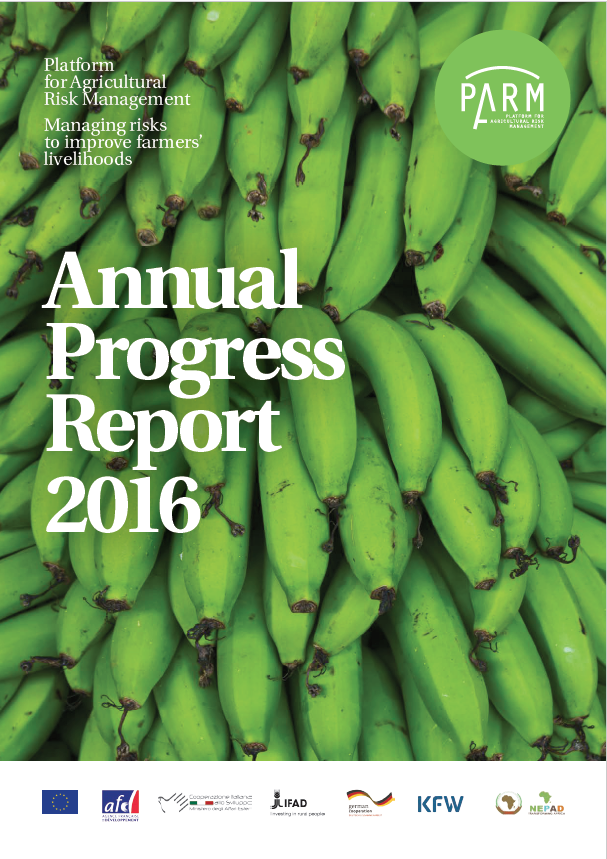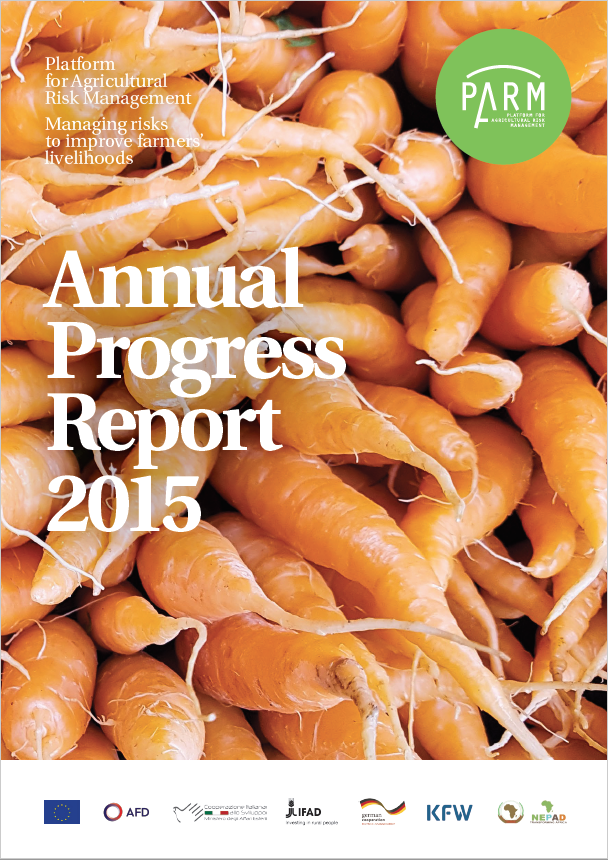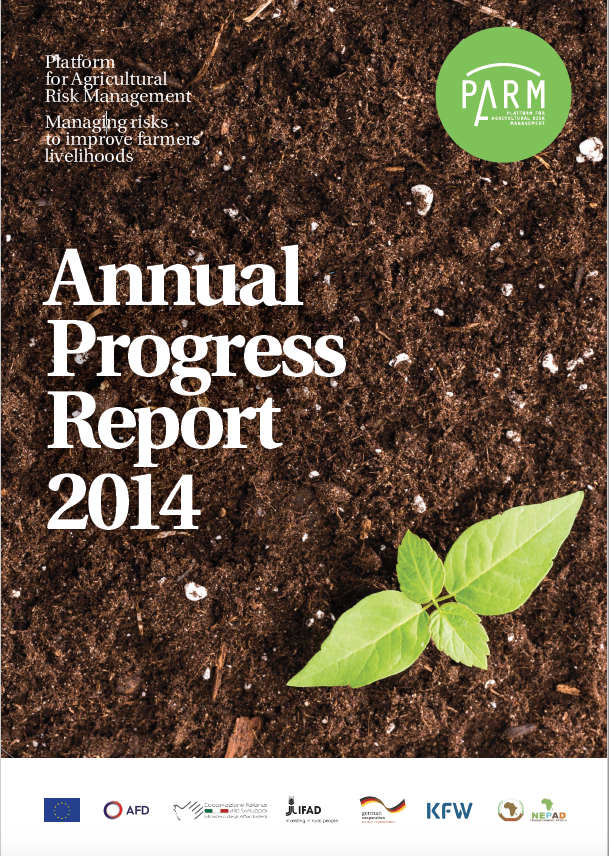PARM is pleased to share the 2018 Annual Report that documents the Platform’s evolution and results as of the year 2018. PARM and its partners have worked to improve the assessment of agricultural risk and capacities to mainstream ARM into country policies in sub-Saharan Africa. We hope that this report teases your interest in PARM and helps to better understand the work of PARM and the importance of managing risks for sustainable agricultural systems in a holistic way.
PARM’s participatory ARM process with a range of national, regional and global partners led to the implementation of a number of activities in 2018, to build on the existing efforts and achievements over the past years, while also looking into the opportunities coming up the years ahead. The 2018 Annual Report presents the cumulative outcomes and achievements, since the commencement of the PARM initiative, within four broader areas:
Bringing evidence to improve risk perception
PARM continued its country-level support on systematic risk assessments in its partner countries, taking into account a wide variety of risks and relying on evidence-based sources to obtain a clear picture of the priority risks affecting either the country as a whole, or of specific regions, and the country’s capacity to manage risk. The assessments also identify the appropriate tools and strategies to manage priority risks. PARM carried out seven risk assessment studies (RAS) and has finalized its second phase on risk assessment with national validation workshops in Uganda, Ethiopia, Niger, Senegal, Cabo Verde, Cameroon and Liberia.
Increasing awareness and capacities to build local expertise on ARM
Access to information and capacity development ARM are among the key cross-cutting areas for investment in ARM, which are also and a key pillar of (P)ARM. PARM has been developing new CD approaches on ARM aiming to improve human capital and drive a sustainable institutional and behavioural change beyond conventional training approach and, where possible, use the capacity potential of local knowledge-based institutions such as universities and research agencies, in order to institutionalize the ARM knowledge and build local expertise.
As a result, PARM has been able to create a network of 64 international and local experts on ARM and strengthen partnership with international and local research centres, universities and extension service directorates providing ARM training at three levels. In particular, progress has been made at the country-level through partnership agreements between PARM and local knowledge institutions in Uganda (Makerere University), Senegal (UCAD), Niger (AGHRYMET) and Ethiopia (Hawassa University) to integrate ARM curricula. A total of 595 national stakeholders have been trained and 290 international practitioners reached through webinars. PARM has also developed full training courses materials at CD1 and CD2 level. At the regional and global level, PARM signed an agreement with FAO, for the development of 4 e-learning courses on ARM, part of the broader joint effort led by EC, PARM/IFAD, FAO and NEPAD.
Facilitating policy dialogue to leverage investments on ARM
PARM has worked in partnership with local governments and stakeholders to enable the policy environment to bring risk management at the core of development and agricultural policies by identifying appropriate risk management tools and strategies to address risk priorities. Various tools have been assessed and adapted for application by the host Governments in support to the National Agriculture Investment Plan. Access to information through new technologies, crop pest and disease monitoring plan, integration of ARM capacity development into the extension service action plan, remittances as a tool to facilitate access to financial products and the warehouse receipt systems and futures contracts to inform food reserve contingency plans are some examples of the tools identified through PARM process.
The participatory approach proposed by PARM at regional and country-level also contributed to better connect Governments with existing actors investing in agricultural sector such as NEPAD within the CADDP process, the Africa Risk Capacity, Aghrymet, PARM Steering and Advisory Committee’s members country programmes, in particular with the FAO, IFAD, WFP and the World Bank.
Promoting knowledge sharing, partnerships and innovations on ARM
PARM also played a key role as a global broker promoting knowledge exchange, partnership and innovation on ARM. Over 300 international partners have been engaged in 3 knowledge-sharing events where over 50 global initiatives were showcased. Moreover, the recent agreement signed between IFAD, PARM and the World Bank to migrate the online FARM-D Community of practice (CoP) of 7,000 members to PARM, represents a unique opportunity to scale-up knowledge transfer among different stakeholders.
As a result of raised visibility, PARM is now one of the very few global initiatives explicitly supported by the G7, G20 and the UN’s Global Meetings. In particular, in 2018, PARM was the among the flagship initiatives at the meeting of the G20 Agriculture Deputies in Argentina, which confirmed in its declaration the global recognition of PARM as a unique leading global platform on ARM.
Read more about PARM 2018 Annual Progress Report here.





